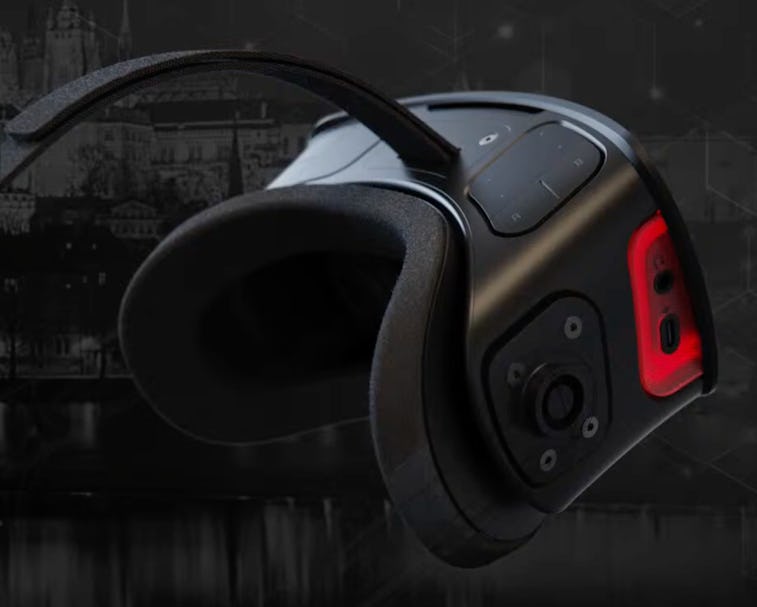Tech
Somnium Space wants to liberate you with its open-source VR headset
The company behind a blockchain metaverse is looking to drop its modular, open-source VR headset in the fourth quarter of 2022.

Somnium Space, the company behind an open and social virtual reality world built on the Ethereum blockchain, has teased the specs and details of its standalone, modular, open-source VR headset.
That’s a lot to take in at once, but an open-source VR headset that you can customize and build upon is a stellar idea. As for who Somnium Space is — the company bill itself as a “blockchain VR metaverse” so kind of like what Mark Zuckerberg is trying to do with Meta, but make it blockchain.
What separates Somnium Space and its VR headset design from the competition is its claim of handing over full ownership to you.
“We don't want to lock you down in our ecosystem, we don't want to not allow you to do things with your items,” Artur Sychov, founder and CEO of Somnium Space, said at the company’s Prague conference that was broadcast on YouTube. “If you buy a VR headset from Somnium Space, you truly own it and you can do things you will not be able to do with other headsets.”
It’s not wild that Somnium Space is building its own VR headset, which it originally announced in October, as it would probably convert many of its players away from existing hardware. But, the headset looks to have much broader applications beyond using it just for Somnium Space’s VR world.
“We thought that we have something that we could offer that's not on the market yet,” Sychov said during the event. “More importantly for us, we have seen a trend where many big companies who are producing VR headsets started to close their ecosystems and kind of create this silo of closed ecosystems.”
Closed ecosystems? *Cough* Meta/Facebook/Oculus *cough*.
Highly customizable — The VR headset is still being designed but the company teased the specs during its conference. Much like other headsets, Somnium Space’s offering is expected to be powered by a Qualcomm Snapdragon XR2 and 8GB of RAM.
More importantly, Somnium Space’s VR headset will feature a modular, open-source design. The headset’s front panel can be swapped out entirely and the sides and bottom have smaller modular panels. Sychov said that Somnium Space will release 3D files of the modular panels so that users can create or customize their own add-ons. Somnium Space will also grant direct open access into the headsets’ sensors, cameras and buttons to its users for full re-mappability.
“We want to set you free, we want you to develop on it, we want you to be in charge of your headset and not the other way around,” Sychov said at the event. “That is very important and I’m pretty sure the ecosystem of developers will grow around it.”
Somnium Space is also working with the VRgineers team behind the XTAL lineup that's known for its high-quality lenses. The headset will feature a horizontal field of view of 115 degrees or more, standalone capability or the ability to plug into your PC, a headphone jack, and three USB ports. The spec list looks like it was designed to compete with the likes of the Steam Valve Index or the HTC Vive Pro 2, and is much higher-end than the entry-level Oculus Quest 2.
No pricing, no pre-orders — Sychov said Somnium Space will take its time to nail the design of its VR headset and will not offer pre-orders. But, he added that the company is planning for its first deliveries to ship out in the fourth quarter of 2022.
No price has been announced yet, but the listed specs so far are similar to that of the HTC Vive Pro 2, which comes in at $1,399 for the full kit with controllers and base stations.